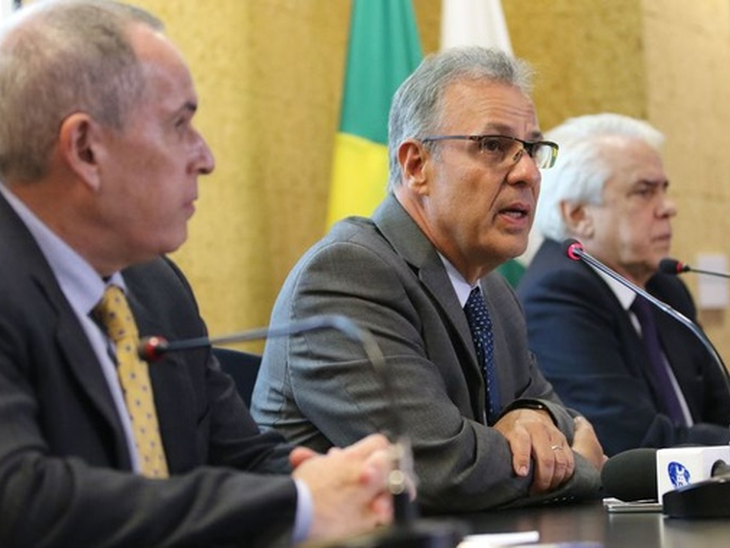US-Iran crisis could affect fuel prices in Brazil
T&B Petroleum/Agência Brasil
07/01/2020 20:12

The Minister of Mines and Energy, Bento Albuquerque, said yesterday (6), after meeting with President Jair Bolsonaro, that the federal government is considering ways to compensate for a possible rise in fuel prices, should the crisis involving the United States and Iran impact stronger the international price of oil.
"We have to create, perhaps, compensatory mechanisms that compensate for this increase without altering the country's economic balance. That this does not generate inflation, but also does not frustrate revenue expectation," the minister told a news conference, alongside the president of Petrobras. , Roberto Castello Branco, and the director general of the National Agency of Oil, Gas and Biofuels (ANP), Décio Odone.
Albuquerque practically ruled out the possibility of the government instituting some kind of subsidy to insure high fuel, as was done in 2018 under Michel Temer's government, due to the increase in the price of diesel, one of the main complaints of truckers, which paralyzed the country during a strike in May of that year.
"I don't know if it will be done with taxes (subsidies), certainly we will not look for this path of taxes so as not to burden even more, but if there is more revenue, there may be compensation on this and this is one of the instruments that are being analyzed. ", said.
ICMS reduction
A proposal presented by the president himself is the possibility of states reducing the tax rate of ICMS on fuels, a state tax, which has a strong impact on the final price formation at the stations.
"Approximately one third of the fuel price in the end is state tax, the ICMS. In Rio de Janeiro, for example, is 30%," Bolsonaro told reporters at the Ministry of Mines and Energy.
The president again said that he will not adopt any price control policy. "There is no government interference. I am not an interventionist, and this policy is very well conducted by our minister, Admiral Bento."
At a news conference, asked about possible tax compensation from states, Bento Albuquerque said the idea is being studied and could be discussed within the National Council for Finance Policy (Confaz), which brings together state finance secretaries, members of the portfolio and the federal government. "This is already being discussed within the government so that when it has this agenda, there can be a meeting at the highest level with the president and the governors."
Pricing Policy
Petrobras President Roberto Castello Branco said he was under no pressure to interfere with the prices charged by the company, which controls 98% of Brazil's fuel refining. "The law since 2002 says there is freedom of fuel prices. And the Bolsonaro government has been practicing this. I have not at any time received any request, pressure, suggestion from either Admiral Bento or President Bolsonaro to lower the price." price, do this or that. There is total freedom in practice for the price of any oil derivative. "
Castello Branco also said he did not believe the current crisis involving the US and Iran could have a long-term economic impact, and that the recent rise in the price of a barrel of oil is in retreat. "We find it unlikely that a political crisis will eventually result in an economic crisis, because the dynamic pole of growth in oil production is no longer OPEC, it is from countries outside OPEC, mainly the US states." United".
The president of Petrobras also pointed out that US production has the ability to react quickly to prices, which disarms the possibility of a high price holding over a reasonably long period. "Of course, surprises can happen, but we are believing that it is very unlikely that we will have, from this shock, an increase of about $ 3 a barrel in oil prices, the markets have calmed down a bit more."




